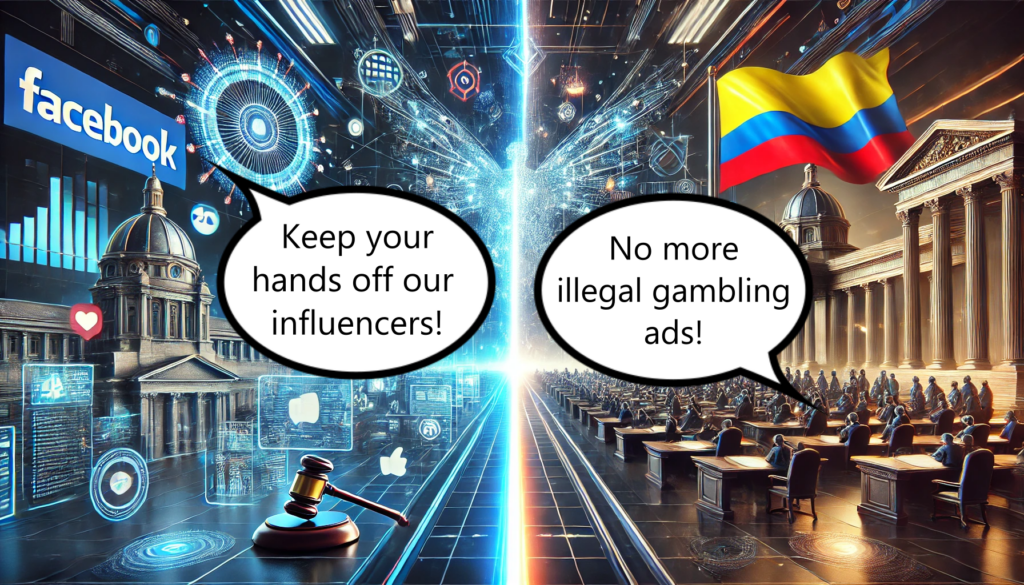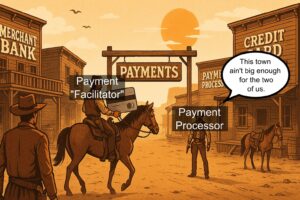Last week, Coljuegos, the Colombian authority overseeing games of chance, betting, and iGaming, revealed a formal order sent to Meta Platforms Inc. (“Meta”), specifically addressing Mark Zuckerberg, demanding that the company block 289 social media accounts. These accounts belong to alleged illegal gambling operators, including 1XBet, and Colombian influencers who have allegedly promoted unregulated betting platforms in Colombia. You can see Coljuegos’s letter here.
Colombia’s Stance on Illegal Gambling Operations
In Colombia, gambling is a state-controlled monopoly as established in the Colombian Constitution and Law 643 of 2001. Coljuegos exclusively manages and regulates the operation and authorization of games of chance in Colombia. Conducting gaming operations without Coljuegos’s explicit approval is illegal and may result in hefty penalties, including administrative fines and imprisonment. Current legislation also allows the government to pursue additional measures, such as the confiscation of promotional materials and the blocking of websites that advertise illegal activities.
Under Colombian law, those who advertise illegal gambling platforms, like influencers, can also face fines or criminal charges, particularly if the promotions are linked to money laundering or other illicit activities.
The Colombian government takes gambling operations very seriously, as evidenced by the significant gambling proceeds dedicated to supporting the public health system. According to Coljuegos’s president, the agency expects to collect 1.7 billion Colombian pesos (roughly CAD $430 million) for healthcare by the end of 2024. However, illegal gambling remains an issue. During a press conference, Coljuegos’s president stated that almost 70 billion pesos (CAD $23 million) are lost annually to illegal gambling, which is why “it is essential that multinationals such as Meta join the fight against this criminal behaviour.”
Will Meta Comply?
As groundbreaking as Coljuegos’s order may be, it remains to be seen if Meta will comply. Following the government’s instructions could demonstrate Meta’s commitment to supporting national regulations. However, influencers affected by the order might argue that blocking their accounts infringes on their freedom of expression and/or their right to work (which are constitutionally entrenched fundamental rights in Colombia).
If Meta refuses to act, this could result in tensions between the platform and Colombian authorities. It could also undermine efforts to regulate illegal gambling and protect public health resources. Regardless of Meta’s decision, the outcome will set an important precedent in Colombia and may influence how other Latin American countries collaborate with tech giants to enforce local laws, particularly those targeting the advertising and promotion of illegal gambling operations.
The Canadian Perspective
Canada has its own issues when it comes to gambling ads. Since the launch of Ontario’s iGaming scheme in 2022, Canadians across all provinces have been increasingly exposed to ads for iGaming platforms. This has sparked nationwide controversy, with some provincial lottery corporations expressing opposition and concern. The issue lies in the fact that authorized gambling operators are technically only permitted to advertise in Ontario, not in other provinces, but often national ads “spill over” into other provinces. Accordingly, and despite this restriction, ads for Ontario-registered iGaming platforms are visible across the country today.
However, change may be coming to Canada’s gambling advertisement landscape. The Canadian Parliament has stepped in and seeks to regulate gaming advertising federally through Bill S-269, also known as “An Act respecting a national framework on advertising for sports betting.”
Bill S-269 has already passed its third reading in the Senate and awaits its first reading in the House of Commons. If passed, this bill could provide a standardized national framework to approach gambling advertising. For a closer look into Bill S-269 and its potential impact, check out our article that deals exclusively with that topic here.




